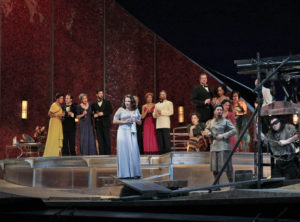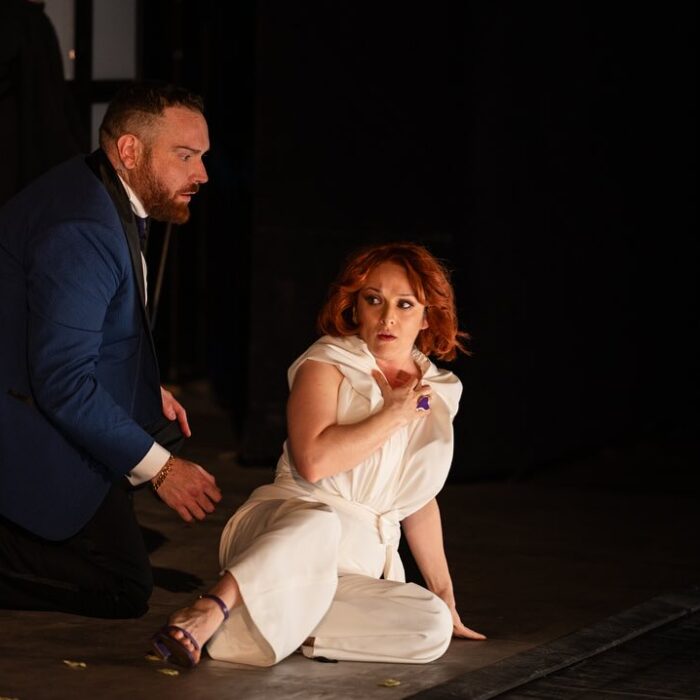
Metropolitan Opera 2016-17 – Salome Review Roundup: Critics Marvel At Patricia Racette’s Embodiment of Crazed Heroine
By David SalazarThe second performance of the Metropolitan Opera’s “Salome,” starring Patricia Racette, takes place on Friday, Dec. 9.
The first performance featured the Met role debut for Racette, a portrayal that earned her universal acclaim. Eric C. Simpson of the New York Classical Review wrote that “ the veteran soprano had a career night Monday, showing she still has an enormous amount to offer, both musically and dramatically, as an artist. Racette has not had a success at the Met like this in several years–maybe ever.”
No less enthusiastic was Patrick Clement James of Parterre Box who praised the diva for turning Salome’s humiliation into glory “elegantly.” “Her voice, more lyrical than that of a traditional Salome, allows her work to highlight the hubris that propels the character toward own her heart of darkness,” he added. Martin Bernheimer of the Financial Times loved the singer’s “gutsy abandon” and the unflagging power” of her singing.
Bachtrack’s Ako Imamura wrote that “Racette used her lyrical voice to good effect to sing the demanding role with good German diction. Her stamina was astounding and she did not seem out of breath after the dance of seven veils.”
Gerhard Siegel also received accolades, particularly from Bernheimer, who noted that “he dominated the stage with contradictory qualifications: the persona of a busy buffo and the tone of an authentic Heldentenor.” Simpson added that “Siegel showed a forceful, aggressive tenor. Though he barked in spots, when he set his mind to it he could bellow forth clear, ringing pitches, and blazing lyrical lines.” Clement James loved his “wonderfully unhinged Herod… his voice bites through the gnarly textures of the orchestra with sharp vigor.” Likewise, Imamura expressed admiration for Siegel’s ability to sing “every note of the lecherous but weak stepfather with accuracy and nuance, his penetrating tenor cutting through the thick orchestration.”
Željko Lučić’s perform’s was more mixed for critics with Bernheimer stating the Serbian baritone “sounded a big gruff onstage and suffered from back miking when off.” Clement James found him “serviceable” though lacking in “empathy, bordering on a mean-spirited, stingy misogyny.” Simpson and Imamura were was far more complimentary, the former expressing admiration for the singer’s ability to bring “rich, dark color to the music as he seethed with disdain” while the latter pointed toward the Serbian’s “easy legato” and “dignity and poise.”
Imamura enjoyed conductor Johannes Debus’ reading of the score, indicating that “while one might have wished for a more romantic and sweeping Viennese waltz in place of his precise and understated reading, he presented the score as one unified movement.”
Of Jurgen Flinn’s production, the critics were also divided. Bernheimer was rather vocal about his dislike for Jurgen Flinn’s “silly production,” adding that “Santo Loquasto’s incongruously modern costumes added nothing to narrative comprehension, and his awkward set remained an obstacle course for the agitated participants.” Simon was more complimentary, writing on how the production “works, oddly creating a compelling setting for the moral shock on which the drama rests.
Categories
News

